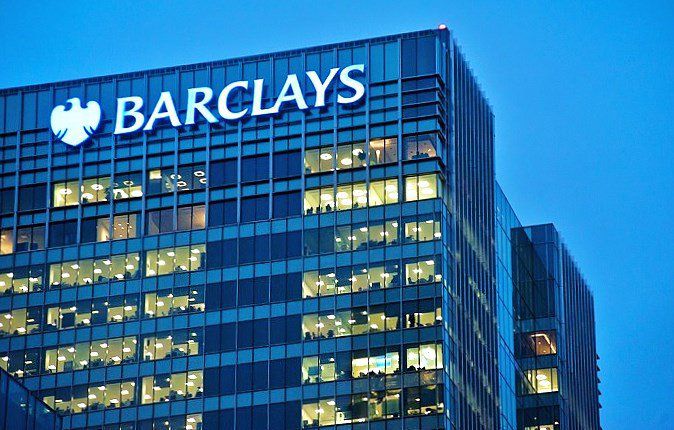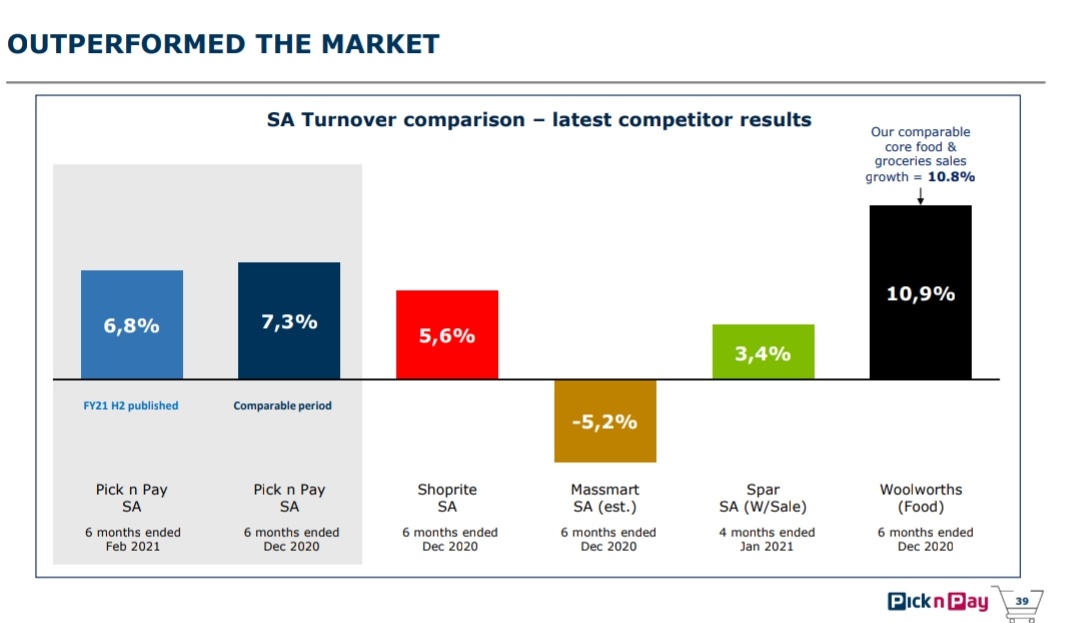
Absa Group has re-engaged advisors and is again considering implementing a new B-BBEE ownership transaction.
It envisages that the scheme will be broad-based, will include both 3rd party investors and staff and that it could constitute up to 8% of Absa’s share capital.
It envisages that the scheme will be broad-based, will include both 3rd party investors and staff and that it could constitute up to 8% of Absa’s share capital.

When Barclays PLC sold its stake in Barclays Africa Group, it transferred 1.5% of its shareholding in Absa Group to an interim structure.
The Absa Empowerment Trust has utilised dividends received from Absa to purchase additional shares, increasing its stake in Absa to 1.9%
The Absa Empowerment Trust has utilised dividends received from Absa to purchase additional shares, increasing its stake in Absa to 1.9%
Who did Barclays get involved in Absa?
Barclays PLC acquired 55.5% of Absa Group Ltd in 2005.
At the time when Barclays PLC let Africa, it had a ~62.3% stake in Absa.

Barclays PLC acquired 55.5% of Absa Group Ltd in 2005.
At the time when Barclays PLC let Africa, it had a ~62.3% stake in Absa.


The most significant acquisition Barclays made was buying
Sanlam’s entire 21,3% stake in banking group Absa for R10,3bn.
Sanlam sold all of its 124,3-million Absa shares for R82,50 per share.
This increased Barclays shareholding in Absa to 54%.
Sanlam’s entire 21,3% stake in banking group Absa for R10,3bn.
Sanlam sold all of its 124,3-million Absa shares for R82,50 per share.
This increased Barclays shareholding in Absa to 54%.

Another telling transaction took place between 2012 and 2013.
ABSA issued 129.5m shares (R18.3bn)to Barclays in exchange for the Barclays’ African operations.
This increased Barclays’ stake in ABSA from 55.5% to 62.3%
Absa Group was renamed Barclays Africa Group.
ABSA issued 129.5m shares (R18.3bn)to Barclays in exchange for the Barclays’ African operations.
This increased Barclays’ stake in ABSA from 55.5% to 62.3%
Absa Group was renamed Barclays Africa Group.

1 March 2016, Barclays Plc announced its intention to divest part of its 62.3% shareholding in Barclays Africa over the next 2-3 years.
Changes in international regulations made it less attractive to own stakes in large banks abroad.
The sell down by Barclays Plc was quick.
Changes in international regulations made it less attractive to own stakes in large banks abroad.
The sell down by Barclays Plc was quick.
5 May 2016, Barclays Plc sold 103,592,491 ordinary shares in the issued share capital of Barclays Africa (12.2%) at a price of R126 per share through an accelerated bookbuild placing raising aggregate gross sale proceeds R13,05bn.
This decreased Barclays stake to 50.1%.
This decreased Barclays stake to 50.1%.
2017, Barclays intended to sell 22%, but due to demand, Barclays decided to ⬆️ the size of the placing to 33.7%.
Barclays
placed 285,691,979 ordinary shares of Barclays Africa Group at a price of R132.0 per share, raising gross sale proceeds of R37,71bn.
Only 26.7% taken up.
Barclays
placed 285,691,979 ordinary shares of Barclays Africa Group at a price of R132.0 per share, raising gross sale proceeds of R37,71bn.
Only 26.7% taken up.
Post the bookbuild, Barclays Plc's total interest in Barclays Africa ⬇️ from 50.1% to 23.4%.
4 Sept 2017, a transaction was effected in which a 1.5% stake in Barclays Africa was transferred from Barclays to an interim B-BBEE structure which was established by Barclays Africa.
4 Sept 2017, a transaction was effected in which a 1.5% stake in Barclays Africa was transferred from Barclays to an interim B-BBEE structure which was established by Barclays Africa.
The PIC has indicated a desire to take up to 7.0% of Barclays Africa Group stake on a deferred completion, subject to receipt of all necessary regulatory approvals by the PIC.
Barclays’ total interest in Barclays Africa then decreased to 14.9%.
Barclays’ total interest in Barclays Africa then decreased to 14.9%.

In 2018, Barclays PLC received approval from the Prudential Regulatory Authority and Financial Conduct Authority in the United Kingdom for the for the full regulatory deconsolidation of
Absa Group (formerly Barclays Africa Group), effective 30 June 2018.
Absa Group (formerly Barclays Africa Group), effective 30 June 2018.

The separation of Absa Group from Barclays PLC was one expensive transaction.
Barclays PLC contributed R12.6 billion in 2017 towards the three-year separation programme, which comprised mainly IT and brand projects.
Barclays Africa Group is renamed Absa Group on 11 July 2018.

Barclays PLC contributed R12.6 billion in 2017 towards the three-year separation programme, which comprised mainly IT and brand projects.
Barclays Africa Group is renamed Absa Group on 11 July 2018.


The shareholding of Absa Group has significantly changed over the years.
Currently the major shareholders are;
Barclays PLC - 14.8% (minority stake).
PIC - 6.24%
Currently the major shareholders are;
Barclays PLC - 14.8% (minority stake).
PIC - 6.24%

Do you think Barclays regrets selling its 19.6% stake in BlackRock?
BlackRock increased its assets under management to $9.49trn in Q2 of 2021 up from $7.32trn in Q2 of 2020.
Barclays said it sold its 19.6% stake in BlackRock to comply with the Basel III regulations.

BlackRock increased its assets under management to $9.49trn in Q2 of 2021 up from $7.32trn in Q2 of 2020.
Barclays said it sold its 19.6% stake in BlackRock to comply with the Basel III regulations.


Absa Group became the first top bank to invest in a BEE consortium.
This was in 2004 via sale of preference shares to Batho Bonke at R2 each.
This offer represented 10% of Absa’s ownership.
It got messy. Tokyo was involved via Mvelaphanda Holdings' interest in Batho Bonke.
This was in 2004 via sale of preference shares to Batho Bonke at R2 each.
This offer represented 10% of Absa’s ownership.
It got messy. Tokyo was involved via Mvelaphanda Holdings' interest in Batho Bonke.

The BEE deal was partly unwound in 2009 (4.99%).
The remaining 5.01% was sold by the consortium in 2012.
Batho Bonke sold 24.6m shares (3.4%) stake in Absa at R132.50 each, which was a 4.3% discount to Absa's closing price the previous day and raised ~R3.26billion.
The remaining 5.01% was sold by the consortium in 2012.
Batho Bonke sold 24.6m shares (3.4%) stake in Absa at R132.50 each, which was a 4.3% discount to Absa's closing price the previous day and raised ~R3.26billion.
The deal between Batho Bonke and Absa Group could've taken the direction of Sanlam’s deal with Ubuntu-Botho which birthed African Rainbow Capital.
Such BEE deals only (significantly) benefit a few people and there are numerous examples to support this.
Such BEE deals only (significantly) benefit a few people and there are numerous examples to support this.
https://twitter.com/MaanoMadima/status/1425157869914165250?s=19
Fun fact:
Industrial and Commercial Bank of China Limited (ICBC) has a strategic partnership with Standard Bank Group and is a 20% shareholder in SBG.
ICBC paid ~R36.7bn for the 20% stake in 2008.
It surpasses the R33bn that Barclays paid for a ~50% take in Absa Bank in 2005.
Industrial and Commercial Bank of China Limited (ICBC) has a strategic partnership with Standard Bank Group and is a 20% shareholder in SBG.
ICBC paid ~R36.7bn for the 20% stake in 2008.
It surpasses the R33bn that Barclays paid for a ~50% take in Absa Bank in 2005.

In 2012, ICBC bought 80% of Standard Bank’s shareholding in Standard Bank Argentina in a deal worth $600m.
In 2015, ICBC also bought a 60% in Standard Bank Plc for $690m. This was a great move as it enable ICBC to enter the London market as Standard Bank Plc.
In 2015, ICBC also bought a 60% in Standard Bank Plc for $690m. This was a great move as it enable ICBC to enter the London market as Standard Bank Plc.
What are the effects of how BEE deals are financed?
In 2019, the 100 largest JSE listed companies had succeeded in "generating" R317bn in value for B-BBEE participants since 2000.
~R208bn of the (R317bn) value generated was still locked in shares and was yet to be monetized.
In 2019, the 100 largest JSE listed companies had succeeded in "generating" R317bn in value for B-BBEE participants since 2000.
~R208bn of the (R317bn) value generated was still locked in shares and was yet to be monetized.
Vendor financing is very common in BEE deals.
It is when the seller provides financing for the buyer.
Quick example:
X Ltd needs to "up" their BEE rating and decides to sell 5% shares to a BEE consortium.
The buyers don’t have the money to buy the 5% stake.
It is when the seller provides financing for the buyer.
Quick example:
X Ltd needs to "up" their BEE rating and decides to sell 5% shares to a BEE consortium.
The buyers don’t have the money to buy the 5% stake.

X Ltd then sells the shares to the consortium and simultaneously lends them the money to buy the shares.
Buyers use dividends to repay the debt and the interest.
Buyers are also locked in and can't sell the shares until the full loan is paid up.
See Natal Portland Cement deal.
Buyers use dividends to repay the debt and the interest.
Buyers are also locked in and can't sell the shares until the full loan is paid up.
See Natal Portland Cement deal.

One Capital Advisory made a killing of R250 million in fees for helping Northam Platinum replace its Zambezi Platinum BEE scheme and implement a new BEE scheme.
The R250m fee left some scratching their heads and some salivating.
Of the R331m in fees, R250m went to One Capital.
The R250m fee left some scratching their heads and some salivating.
Of the R331m in fees, R250m went to One Capital.

• • •
Missing some Tweet in this thread? You can try to
force a refresh















